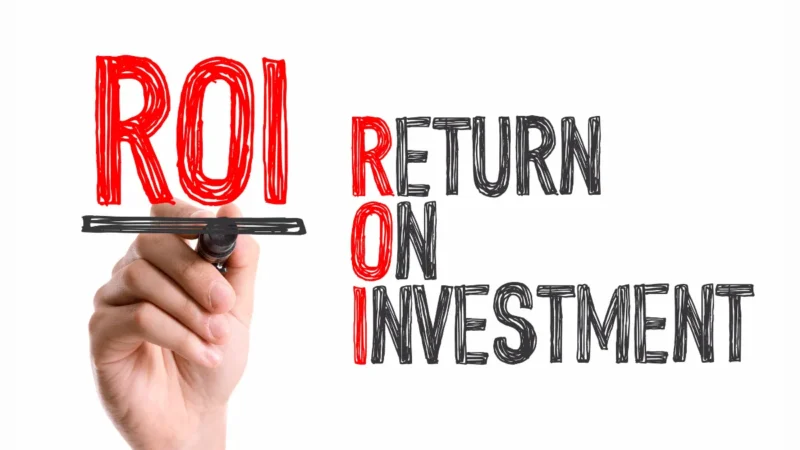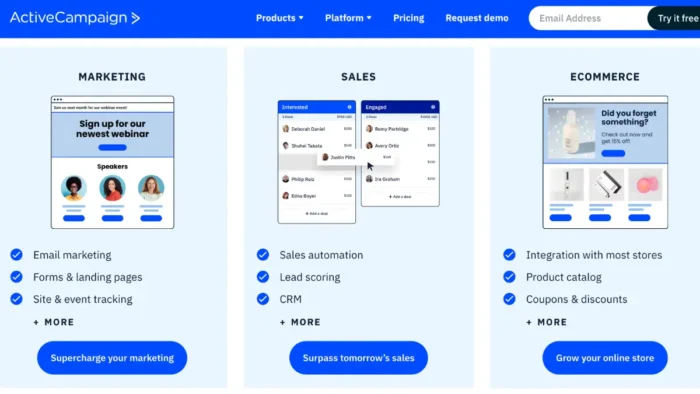From creating content to running ads and improving customer engagement, digital marketing is an essential part of any business’s growth strategy. But with so much effort being put in, the crucial question remains: how do you know if your marketing campaigns are actually providing a return on investment (ROI)? To ensure that all your hard work isn’t going to waste, businesses need to measure their ROI when it comes to digital marketing campaigns.
This blog post will discuss everything from setting up KPIs and understanding analytics tools available through various channels – such as Google Ads or Facebook – to tracking conversion rates and determining overall operational efficiency. By considering these steps, businesses can get a better perspective on where they stand when looking at the bigger picture of their ROI success.
Understand Your Goals and Objectives
In order to have a successful digital marketing campaign, it is important to understand your goals and objectives. What is it you hope to achieve from this effort? Do you want to increase brand awareness, drive traffic to your website, generate leads or conversions, or all of the above?
Once you have a clear understanding of the purpose of your campaign, you can better strategize and tailor your approach to achieve your desired outcomes. As your campaign progresses, it’s important to regularly monitor and track your progress against your objectives, making adjustments along the way as needed to stay on track.
By setting clear goals and objectives, and tracking your progress towards them, you’ll help ensure that your digital marketing campaign is successful and contributes to the growth of your business. Additionally, the benefits of using a digital marketing agency to help set up and track campaigns could also be considered.
After establishing the goals and objectives of your campaign, it’s important to set up key performance indicators (KPIs) that will help you measure your success. These KPIs should be directly related to the objectives you set out for yourself so that when they are met, you know that you have achieved your desired goals for the campaign.
Analyze Your Audience
Knowing your audience is a critical aspect of any successful digital marketing campaign. Understanding their needs, preferences, and behavior is key to crafting messages that resonate with them. Whether you’re targeting millennials, baby boomers, or any other demographic group, it’s vital to identify their pain points, interests, and buying habits. You can measure their engagement using metrics such as click-through rates, likes, shares, comments, and conversions. By analyzing this data, you can refine your strategy and optimize your campaigns for maximum impact.
Ultimately, the better you know your audience, the more effective your digital marketing efforts will be. So take the time to get to know them and build meaningful connections that will drive results.
Creating your ideal client is by far the simplest method for determining your target audience. Ask questions like following or similar:
- What age group do they belong to?
- What hobbies do they enjoy?
- What needs do they have that your goods or services can satisfy?
The more detailed and fleshed-out your ideal client is, the better. And once you have that figured out, you can start making products that will appeal to your target market.
Identify Key Performance Indicators (KPIs)
Tracking the success of your campaigns is an essential part of any marketing strategy. When it comes to measuring success, identifying the right Key Performance Indicators (KPIs) is crucial. KPIs allow you to track and evaluate the effectiveness of your marketing efforts and can help you make informed decisions about which campaigns are working and which ones are not. It’s important to select KPIs that accurately reflect your goals and objectives. Impressions, clicks, conversions, and cost per click are just a few of the KPIs you can use to track your campaigns. By selecting the right KPIs, you can ensure that your campaigns are on track and achieving the desired results.
Track Results
In today’s digital age, businesses must stay ahead of their competitors by constantly analyzing and adjusting their digital marketing strategies. By using data analysis tools, businesses can track the performance of their campaigns and gain insights into customer behavior. With this data, it becomes easier to make informed decisions to optimize campaigns and improve ROI. It’s not enough to simply create a campaign and let it run without any monitoring or adjustments.
By taking advantage of the tools available, businesses can track their performance over time and make the necessary changes to ensure success. So, whether you’re a small business owner or a marketing professional, don’t overlook the power of data analysis in tracking and optimizing your digital marketing campaigns.
Additionally, technology plays a massive part in our daily lives. It is linked with almost every field of work, and all industries follow it to measure the development of new technologies. So, it is crucial to do a technology evaluation before starting your startup or building your innovative product.

Measure Return on Investment (ROI)
When it comes to advertising campaigns, measuring return on investment (ROI) is crucial in determining success. By calculating the ROI for each campaign, businesses can compare the costs of the campaign to the revenue generated. This enables them to determine whether the campaign was profitable and identify which campaigns were most effective at generating revenue.
Knowing this information will allow businesses to allocate their advertising budget wisely and focus on running campaigns that deliver the best ROI. With this knowledge, businesses can make informed decisions on investing in campaigns that are likely to generate the highest returns.
Optimize Your Campaigns
In today’s world, effective campaign strategies are vital to the success of any business. But how can you ensure your campaigns are top-notch? One word: optimization. By using the data gathered from your previous campaigns, you can refine your strategy and create even more effective campaigns in the future. It’s a win-win situation: you’ll save time and resources while also seeing more significant results.
So whether you’re looking to boost sales, increase brand awareness, or drive website traffic, make sure to optimize your campaigns for maximum impact. Your bottom line will thank you.
Conclusion
The return on investment of digital marketing campaigns is often one of the most important considerations when planning a new campaign. To correctly measure ROI, marketers must clearly understand their goals, know who they are targeting, identify appropriate KPIs, track results, and calculate ROI. Armed with these key elements, marketers can create strategic campaigns that result in maximum cost-efficiency and provide the best possible return on their digital marketing investments.
Considering all the information discussed throughout this post, measuring the ROI of your digital campaigns isn’t as complex as you may think. With proper planning and execution and access to the right data analysis tools, you’ll quickly be able to see how each campaign is performing and implement strategies that will lead to even greater success in the future.





